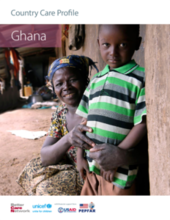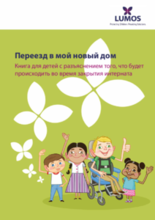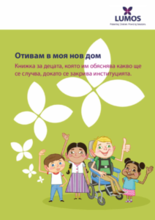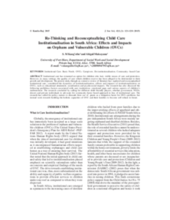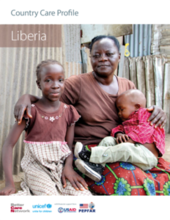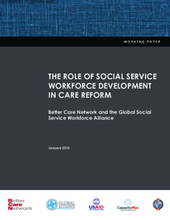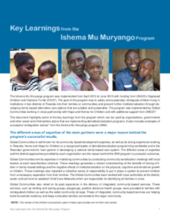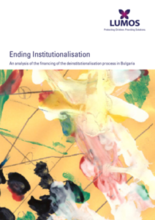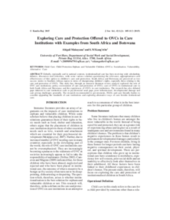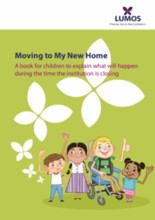Displaying 391 - 400 of 691
This country care profile provides an overview of key lessons learned in the children’s care reform process in Ghana, including successes, challenges and areas for progress, and gaps in learning and best practice.
Целью этой книги является объяснить детям то, что их ожидает во время закрытия интерната.
Целта на тази книжка е да обясни на децата какво да очакват през периода, когато институцията се затваря.
The present study, through an extensive review of literature has explored and reconceptualised institutional care and considered the dynamics of institutionalization. The study also examines the effects and impacts of institutionalization on OVCs in South Africa, such as educational attainment, socialization and psychosocial impacts.
This country care profile provides an overview of key lessons learned in the children’s care reform process in Liberia, including successes, challenges and areas for progress, and gaps in learning and best practice.
This working paper, produced by the Better Care Network and the Global Social Service Workforce Alliance, explores the topic of social service workforce strengthening as it relates to child care reform.
This document highlights some of the key learnings from the Ishema Mu Muryango program, a program designed to safely and sustainably reintegrate children living in institutions in two districts of Rwanda into their families or communities and prevent further institutionalization.
According to this report from Lumos, in 2010 there were more than 6,700 children living in institutions in Bulgaria.
This study has, through an immense literature review analysis explored: the role of OVC care institutions; policy environment of care and protection of OVCs; care of OVCs in institutional care in both South Africa and Botswana; and the experiences of OVCs in care institutions.
The aim of this book is to explain to children what to expect during the time the institution in which they reside is closing.

